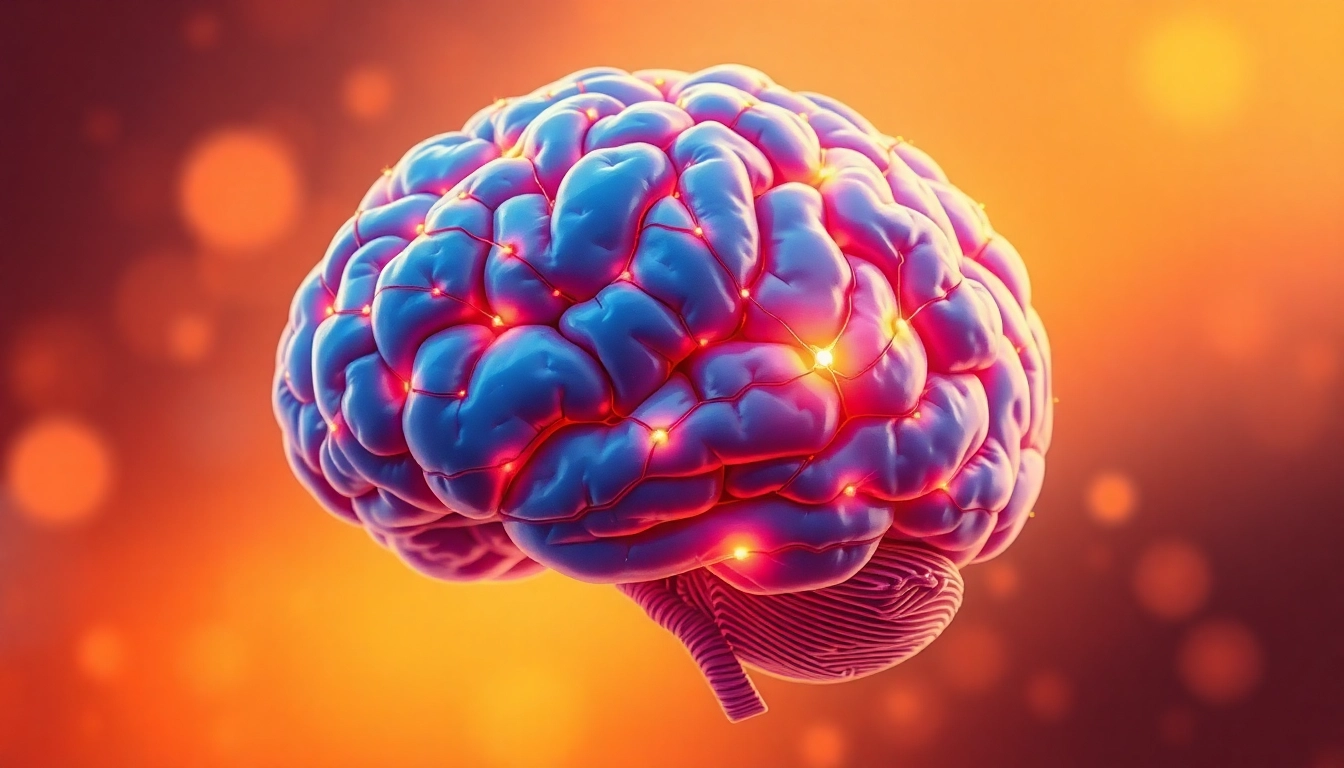
Understanding Nootropics: The Basics
Nootropics, often referred to as “smart drugs,” are substances that individuals use to enhance cognitive function—encompassing aspects like memory, creativity, motivation, and overall brain performance. They have a growing presence in modern culture, primarily among students, professionals, and wellness enthusiasts seeking an edge in intellectual performance. These compounds have unique mechanisms of action and diverse effects on the brain, making them a topic of great interest in both academic and personal settings. For those curious about improving cognitive function, exploring Nootropics offers a fascinating pathway.
What Are Nootropics?
Nootropics can be either natural or synthetic compounds that are believed to enhance cognitive functions. The term was first coined in the 1970s by Romanian psychologist Corneliu E. Giurgea, who characterized nootropics as substances that improve learning and memory and have few side effects. Commonly used nootropics include caffeine, L-theanine, and various herbal extracts, all of which are esteemed not just for their effectiveness but also for their relative safety.
How Nootropics Work in the Brain
The mechanisms through which nootropics exert their effects can vary widely. Some natural nootropics may work by increasing neurotransmitter production, enhancing blood flow to the brain, or even promoting the growth of new neural connections. For instance, caffeine blocks adenosine receptors, leading to increased alertness and diminished perception of fatigue. Other nootropics may enhance cognitive function through antioxidant properties, supporting overall brain health by reducing oxidative stress.
Common Types of Nootropics and Their Benefits
Nootropics can be classified broadly into several categories, including:
- Racetams: These include compounds such as Piracetam, which are noted for their potential to enhance memory and learning capabilities.
- Cholinergics: Substances like Alpha-GPC increase levels of acetylcholine, a crucial neurotransmitter linked to memory and cognition.
- Adaptogens: Herbal supplements like Rhodiola Rosea help the body resist stress, enhancing focus and cognitive performance.
- Stimulants: Compounds such as caffeine provide immediate enhancements in alertness and energy levels.
These categories don’t encompass all nootropics, but they represent some of the most popular among users seeking cognitive enhancement.
Popular Nootropic Ingredients: A Deep Dive
Caffeine: The Ubiquitous Stimulant
Caffeine is arguably the most well-known nootropic, often consumed in coffee, tea, or energy drinks. Its ability to enhance alertness and concentration is backed by extensive research. Caffeine works primarily by blocking adenosine receptors in the brain, which helps to stave off feelings of tiredness and increases the secretion of other neurotransmitters, such as dopamine. Studies indicate that moderate caffeine consumption can lead to improved cognitive performance, particularly in tasks requiring sustained attention.
L-Theanine: The Calming Companion
L-Theanine, found predominantly in green tea, is another powerful nootropic. It has a unique ability to induce a state of relaxation without drowsiness. This compound works by promoting the production of relaxing neurotransmitters like GABA and dopamine, which may help counterbalance the jittery effects of caffeine when taken together. The synergy between caffeine and L-theanine can thus enhance cognitive performance while promoting a calm, focused mind.
Rhodiola Rosea: Stress Reduction and Focus
Rhodiola Rosea is an adaptogenic herb renowned for its ability to reduce fatigue and improve mental performance under stress. Research supports its use in enhancing cognitive function during challenging situations. Those who integrate Rhodiola into their cognitive enhancement regimen often report feeling less fatigued and more focused, making it a favored nootropic among students and professionals dealing with high-stress environments.
Using Nootropics Safely: Best Practices
Dosage Guidelines for Nootropics
Finding the right dosage is critical when incorporating nootropics into your routine. Individual responses can vary widely based on factors such as body weight, metabolism, and tolerance levels. For instance, while a standard caffeine dose is typically around 200 mg for enhanced cognitive performance, individuals may need to adjust this amount based on their sensitivity. It’s advisable to start with lower doses and gradually increase as needed, always monitoring how your body reacts to avoid adverse effects.
Potential Side Effects to Consider
While many nootropics are generally safe, it’s essential to be aware of potential side effects. For example, excessive caffeine intake can lead to insomnia, increased heart rate, and anxiety. Similarly, racetams may cause headaches if not paired with a choline source. Being informed about these potential side effects can help individuals use nootropics more effectively and minimize risks.
Interactions with Other Medications
Before starting any nootropic regimen, it’s crucial to consider existing medications or health conditions. Certain nootropics can interact with prescription medications, potentially leading to suboptimal effects or adverse reactions. For instance, mixing stimulants with ADHD medications may lead to heightened side effects. Consulting a healthcare professional before incorporating nootropics into your health regime is always recommended.
Advanced Nootropic Strategies: Tailoring for Performance
Combining Nootropics for Enhanced Effects
Many nootropic users find that stacking different substances can lead to enhanced cognitive effects. A common combination is caffeine and L-theanine, which balances stimulation with calmness. Other popular stacks might involve combining racetams with choline sources to optimize both memory and focus. Experimenting with combinations can yield personalized cognitive enhancement results, but should always be approached with caution and awareness of synergistic effects.
Timing Your Nootropic Intake for Maximum Benefit
Timing can significantly influence the effectiveness of nootropics. For example, stimulant nootropics are best taken before tasks requiring high alertness, while calming nootropics like L-theanine might be better suited for use during high-stress situations for balanced focus. Understanding your daily schedule and mental demands can help in strategically timing your nootropic intake for peak cognitive support.
Assessing Personal Cognitive Goals and Needs
To effectively tailor nootropic use, one must assess personal cognitive goals. Are you seeking to improve memory retention for exams, enhance creativity for project work, or simply improve your focus for daily tasks? Identifying your specific needs will guide you in choosing the right nootropics and facilitate the best combinations and dosages, maximizing the benefits you experience.
The Future of Nootropics: Trends and Research
Emerging Nootropic Compounds to Watch
The landscape of nootropics is ever-evolving, with new compounds and formulations continually emerging. Some newer substances being studied include noopept and various herbal extracts that show promise for cognitive enhancement. Keeping abreast of these developments can provide users with potential new options for their cognitive enhancement regimens.
The Role of Nootropics in Mental Health
Beyond cognitive enhancement, nootropics are increasingly being explored for their potential mental health benefits. Compounds like Omega-3 fatty acids and certain B vitamins have been linked to improved mood and cognitive function. Research continues to explore how certain nootropics can assist in managing mental health disorders, emphasizing the need for a nuanced approach to their use.
Research Trends and Future Directions
Ongoing research into nootropics is showing promising directions, including their effects on neuroplasticity and age-related cognitive decline. As we learn more about the brain’s complexities, future nootropic developments are expected to become more sophisticated, potentially leading to tailored therapies. Keeping an eye on continuing studies will be essential for anyone interested in leveraging nootropics effectively.





